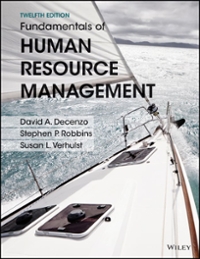On a Saturday afternoon in March of 1911, 146 young women died when a fire swept through
Question:
On a Saturday afternoon in March of 1911, 146 young women died when a fire swept through the Triangle Shirtwaist factory in New York City. The fire spread quickly, fed by scraps of fabric, tissue patterns, and paper boxes that littered the floor of their ninth floor workplace.
Fire exits had been locked by the owner who claimed that workers used them to steal fabric and garments. Fire escapes collapsed under the weight of the women trying to flee the building, many plunging to their death, nine stories below. Elevator cables snapped under the strain with many workers trapped inside. Fire hoses in the building were rotted and useless. Firefighters found their ladders were several stories too short and water from their hoses could not reach the flames. Onlookers were horrified to see women jumping to their deaths on the Manhattan sidewalks rather than be burned alive.
The factory owners were found not guilty of any criminal charges from their negligence and paid $75 per life lost during the fire. Public outcry over the tragedy and perceived lack of justice that followed was a catalyst for change. “It started making employers aware of their responsibility to their workforce,” says Darryl Hill, current President of the American Society of Safety Engineers, an organization that was formed a few months after the tragedy. “Employers today understand that no employee should have to sacrifice their life or their health in the course of employment,” says Hill. Some of the things we see in the workplace today in response to the tragedy include the following:
• Automatic sprinklers
• Unlocked exit doors that swing outward
• Push bars on exterior doors to allow quick exit
• Fire drills r Increased power for Fire Marshals
• Worker Compensation
Many feel that we still have a long way to go to assure worker safety. In fact, the U.S. Department of Labor estimates that 98 percent of garment factories in Los Angeles alone have health and safety problems serious enough to lead to severe injuries or death.
Ethical questions:
In the absence of laws that demand safer working conditions, can the actions of employers such as locking the exits, inadequate fire escapes and elevators, or failing to have working fire hoses be considered unethical? Are there additional actions beyond those required by law that employers should take to protect workers in today’s workplace?
Step by Step Answer:

Fundamentals Of Human Resource Management
ISBN: 9781119032748
12th Edition
Authors: David A DeCenzo, Stephen P Robbins, Susan L Verhulst





